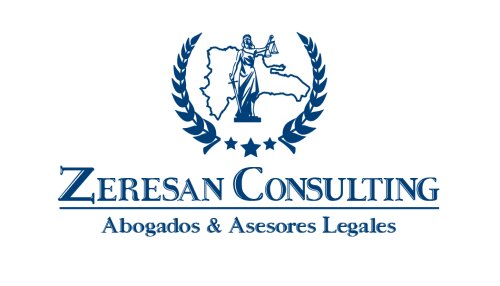Best Foreclosure Lawyers in Santo Domingo Este
Share your needs with us, get contacted by law firms.
Free. Takes 2 min.
Free Guide to Hiring a Real Estate Lawyer
List of the best lawyers in Santo Domingo Este, Dominican Republic
About Foreclosure Law in Santo Domingo Este, Dominican Republic
Foreclosure in Santo Domingo Este, Dominican Republic, is a legal process through which lenders can recover the balance of a loan from borrowers who have stopped making payments by forcing the sale of the asset used as the collateral for the loan. Primarily, this involves real estate properties like homes and commercial buildings. Given that property ownership is an essential aspect of wealth and stability in the Dominican Republic, foreclosure proceedings can significantly impact individuals and families both financially and emotionally.
Why You May Need a Lawyer
There are several situations where you might need legal assistance with a foreclosure:
- Disputing the Foreclosure: If you believe the lender has not followed legal protocols or if there are errors in the documentation, a lawyer can help challenge the process.
- Negotiating with Lenders: Legal professionals can assist in negotiating terms such as loan modifications or short sales, potentially avoiding foreclosure altogether.
- Understanding Your Rights: A lawyer can clarify your rights and obligations, ensuring that you comprehend all legal aspects involved.
- Litigation: If negotiations fail, you might need to proceed to court; having a lawyer can increase your chances of a favorable outcome.
Local Laws Overview
Foreclosure laws in Santo Domingo Este are influenced by the broader legal framework of the Dominican Republic, which is a civil law system based on French law. Here are some key aspects:
- Judicial Process: Most foreclosure processes are judicial, meaning they require a court order to proceed.
- Redemption Period: Borrowers typically have a redemption period during which they can reclaim their property by paying off their debt.
- Deficiency Judgments: These judgments allow lenders to seek the difference if a property sells for less than the owed amount.
Frequently Asked Questions
What is foreclosure?
Foreclosure is the legal process by which a lender seeks to recover the amount owed on a defaulted loan by taking ownership of and selling the mortgaged property.
How long does the foreclosure process take in Santo Domingo Este?
The process duration can vary but typically takes several months to over a year, depending on court schedules and legal complexities.
Can foreclosure be stopped?
Yes, there are options like loan modification, refinancing, or negotiating with the lender to temporarily delay the process or stop it altogether.
What happens during a foreclosure auction?
The property is sold to the highest bidder, often at a public auction, with proceeds used to pay off the loan and other costs.
What are my rights during foreclosure?
You have the right to be notified, the right to redeem your property, and the right to be treated fairly throughout the process.
Do I need to vacate my property immediately after foreclosure starts?
No, you can remain in your home until the process is complete, and only a court order can mandate eviction.
What is a deficiency judgment?
It is a ruling that allows lenders to claim the difference between the property's sale price and the outstanding loan balance.
Is there help available for those facing foreclosure?
Yes, various organizations, including legal aid societies and counseling services, offer help to those facing foreclosure.
Can I negotiate with the lender without a lawyer?
While it's possible, having legal representation can be beneficial, especially if you're unfamiliar with foreclosure laws.
Are there alternatives to foreclosure?
Yes, alternatives may include short sales, loan modifications, and deeds in lieu of foreclosure.
Additional Resources
Those facing foreclosure may find the following resources helpful:
- Local legal aid societies that provide free or low-cost legal advice.
- The Ministry of Housing and Buildings, which may offer resources for homeowners.
- Nonprofit organizations dedicated to housing stability and foreclosure prevention.
Next Steps
If you need legal assistance with foreclosure, consider the following steps:
- Consult a Lawyer: Seek legal counsel with expertise in foreclosure to navigate your specific situation.
- Gather Documentation: Collect all mortgage statements, payment records, and correspondence with your lender.
- Explore Financial Options: Evaluate your financial situation and explore potential solutions such as loan modifications.
- Attend Legal Workshops: Engage in educational workshops or seminars to better understand the foreclosure process and your rights.
Lawzana helps you find the best lawyers and law firms in Santo Domingo Este through a curated and pre-screened list of qualified legal professionals. Our platform offers rankings and detailed profiles of attorneys and law firms, allowing you to compare based on practice areas, including Foreclosure, experience, and client feedback.
Each profile includes a description of the firm's areas of practice, client reviews, team members and partners, year of establishment, spoken languages, office locations, contact information, social media presence, and any published articles or resources. Most firms on our platform speak English and are experienced in both local and international legal matters.
Get a quote from top-rated law firms in Santo Domingo Este, Dominican Republic — quickly, securely, and without unnecessary hassle.
Disclaimer:
The information provided on this page is for general informational purposes only and does not constitute legal advice. While we strive to ensure the accuracy and relevance of the content, legal information may change over time, and interpretations of the law can vary. You should always consult with a qualified legal professional for advice specific to your situation.
We disclaim all liability for actions taken or not taken based on the content of this page. If you believe any information is incorrect or outdated, please contact us, and we will review and update it where appropriate.












